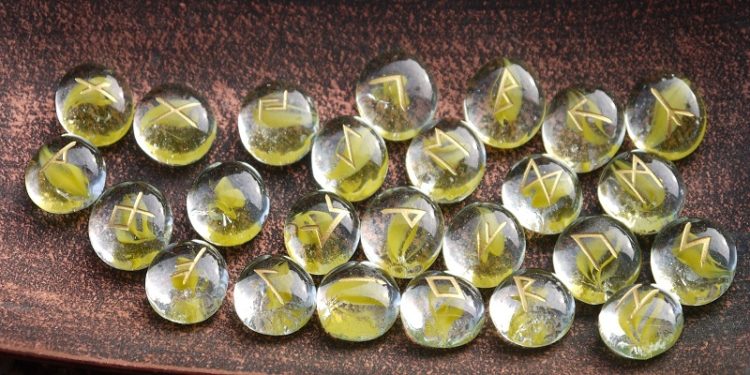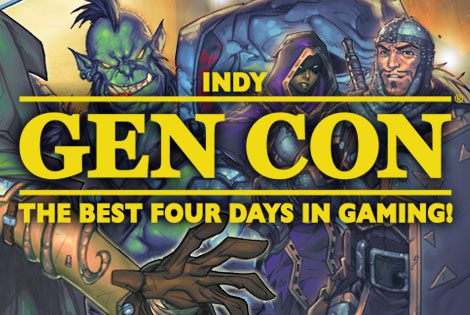Creating a Magic System, P3

A roleplaying magic system can be a pretty cut and dry thing: a spell list, damage, area of effect, and so on, but if done correctly, it can do so much more. Properly done, a magic system can be used to deepen the setting’s theme and background, informing the players and DM about the world, the peoples, and cultures.
All “magic” systems rely on manipulating reality through the use of magic power, special effects, technology, innate abilities, or mutations to create an effect, such as healing, damaging others, buffing, disguise, summoning, animating and so on. The generation of these effects typically takes time to produce and generally drain the character’s health, energy, memory, spiritual power, etc. Such systems are often limited in how much can be accessed at any given time, subject to failure or interruption, through various methods and mechanics. These articles examine each of the abovementioned aspects at a high level.
Magic Mechanics
Magic mechanics affect the way the magic system plays and feels in-game. There are a variety of magic mechanics, including, but limited to:
- Spell Memorization: Casting spells require memorization. While this type of system is rigid in its rules, the resolution lies in “to hit” and damage mechanics.
- Freeform: Spells are cast “on the fly.” They don’t use spell slots. In this type of system, not only does the spell difficulty have to be determined, but also the damage, range, casting time, and so on, as applicable
- Flexibility within a framework. Spellcasters work within loose guidelines. Combining different magic effects to produce something different and more powerful is a possibility.
- Music/ lyrics as Magic: this is the framework in which spell songs in fiction seem to work. Magical music may include such things as chants, poetry, and using an instrument as a focus. There’s also the real-life science of what music can do: pump people up, relax them, shatter glass, etc.
- Spell Points: the character has a set number of points from which to cast their magic. In video games, these points are refreshed by taking a potion that recovers them. Conversely, in a tabletop RPG, they are [typically] only regained by rest.
- Divinely granted: the spells cast are at the whim of the god(s). If the gods are happy with a character, they get power(s). If not, characters may be bereft of their abilities.
- Contractual Magic: Characters contract old powers, fey, or demons to obtain powers. In 5e D&D, the warlock seems to have this system of magic.
- Spiritualism: magical powers are directed, controlled, powered/ empowered, or greatly influenced by ghosts/spirits/souls, demons/devils, phantoms, shades/ shadows, specters, etc. Just because the powers are “spiritual in nature” doesn’t necessarily mean that those granting the powers are willing participants in the exercise. They may be unwitting batteries, slaves, or coerced or forced into helping.
Magic’s Price II
In the last article, we discussed what the price of magic was to the user. But there may be other prices for magic as well.
- Campaign settings:
- In the Dark Sun campaign setting, casting magic is dangerous for the environment if you’re a defiler. Similarly, technology may be bad for the planet.
- The Dragonlance campaign setting has the Test of High Sorcery. According to the Dragonlance Nexus:
There are three tests to test a prospective mage’s knowledge of magic and using all their spells. Three tests are for the mage to use their wits, without using magic alone. One test involves someone they love, and one more test against a greater adversary, someone from the apprentice’s fears. All tests must be passed, the more risk, the better the reward. Failure brings death.
-
- It might be neat to create a test to allow magic users to have access to higher spells. This test could also be connected to the plot somehow.
- In the Forgotten Realms, magic users are reliant on the Weave (or Shadow Weave). Break their connection with it, and they are powerless.
- Those with magic abilities may be unlucky in love.
- Conversely, the person may be TOO lucky. Women (or men) might not be able to get enough of him (or her)
- Magic-users may attract the unwanted attention of monsters or supernatural entities even if they’re not casting spells. On a similar vein of thought, those with powers seem to attract all sorts of craziness.
- Spellcasters may be seen as untrustworthy because they can shape the world’s very forces.
- In a low magic world, magic-users may have to cooperate in casting more powerful spells.
- Mages may be (rightfully) skeptical of supernatural forces, as many of the forces they control seem godlike.
Magic Systems
Several different types of magic systems exist.
Supernatural
- Divine Magic: magic granted by the gods. Though this isn’t necessarily so, the gods may be dead or able to die.
- Demonology: summoning, binding, and controlling demons to do your bidding.
- Soul Fueled magic was discussed above in the section labeled spiritualism. There may also be shades of “Your soul is mine.”
- Contractual magic. These are spells obtained through contracts with supernatural entities.
Genetic
- Inherent Gift: characters are born with abilities that are quite explicitly defined
- Sorcery: Something in the caster’s family allows them to cast magic. •
- Prodigy: The caster can cast spells because of how smart, wise, strong, powerful, or charismatic they are. These prodigies may or may not be a young person, a teen genius, or quite sickly.
- Mental magic is the magic of the mind, as in the case of Psionics. An example is Kathryn Kurtz’ Deryni.
- Force sensitivity. Force abilities or sensitivity seem to run in families in the Star Wars universe
- Mutations: in the X-men series, the mutants’ powers are genetic. Similar to the X-men, in the manga and anime “My Hero Academia.”
Children will either manifest one of their parent’s Quirks or a new composite Quirk formed by the fusion of the two. This composite Quirk may sometimes give the appearance of the person having two separate Quirks, such as Shoto Todoroki’s Half-Cold Half-Hot
Misc.
- Magic symbols are at the heart of Rune magic. By inscribing, speaking, and combining symbols, you can cause different effects. If powerful enough, the caster can produce them instantly. The runes may or may not be
- Tattoo magic: the user has markings on his or her body that empowers their magic. Examples are living notebooks and Animated Tattoos.
- “Stolen magic:” the character may not have much magic themselves, but can pick apart and warp another’s magic to backfire on them or change it to another spell that is harmful to the enemy caster.
- “Stolen magic” II: another idea of stealing magic comes from My Hero Academia. The villain “All for one” takes other’s quirks and uses them for himself or gives them to others.
- Animal Control: brings animals to your aid to perform various tasks. These can take the form of controlled servants. Another way this might work is people who view the animals as teammates or friends. Pokémon, Digimon, and other anime have themes surrounding such ideas. So too do the druids and rangers in D&D. Druids also shape-change into animal forms to help their allies.
- Music as magic: bards typically use their music to help form their music to produce various effects. Then there’s the concept of the music of the spheres.
Schools of magic
Schools of magic emphasize X type of magic while often neglecting Y
- Elementalism: manipulating such forces as fire, water, air, earth, electricity, and so on.
- Illusion: the effects produced are in the person’s mind who experiences it, and the only harm that done is self-inflicted or caused by mental anguish. The magic may produce semi-real effects if believed.
- Necromancy: spells for controlling/ talking to the dead or undead. Necromancy may also heal, but not as effective as pure healing spells.
- Healing: giving back a character’s health, curing a disease, or raising them back from the dead.
- Protection: spells designed to protect the user or his allies
- Creation/ Destruction: spells designed to create something out of seemingly nothing or reusing surrounding materials or causing things to disintegrate.
- Charm/ Compulsion: causing someone to think that you’re their friend or using magic to manipulate them into working for you.
- Summoning: The caster summons creatures. The Duel Monsters & Magic the Gathering falls into this category, as do druidic “Summon” spells.
- Divination: This is foretelling the future, through various means. Other powers include the ability to sense things from a distance.
- Transmutation: changing one substance into another.
In Conclusion
As you can see, there are quite a few interconnected pieces to build a magic system. Because of the differences in these systems, sometimes, the parts will have to be adjusted, so they fit together and interact smoothly. The more of these pieces your game uses for the magic system, the more alive it will seem. Look over the tips presented in these articles to help bring your magic systems to life.



